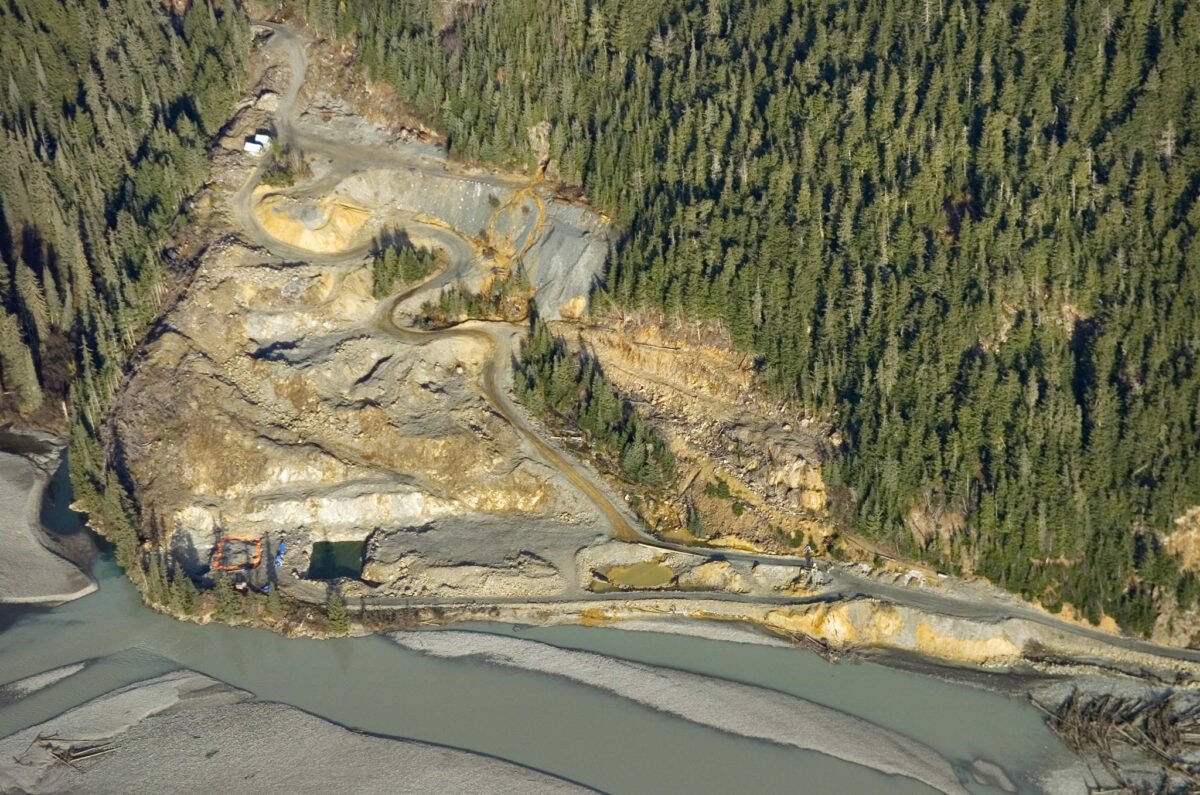By Brian Lynch
I want to thank Larry Edfelt for his thoughtful, albeit troubling comments on the status and potential fate of Taku River king salmon in a My Turn on June 23, 2022.
There may be little we can do to overcome all of the stressors affecting Taku River king salmon survival, but there are two stressors that we do have the ability and opportunity to overcome and aid in the potential recovery of the Taku River king salmon. As Larry pointed out, the Alaska Department of Fish and Game and the Canadian Department of Fisheries and Oceans are diligently working on reducing fishing via severe restrictions on Juneau area fisheries and in river gillnetting, respectively. So, that leaves habitat degradation (pollution). And this is where I disagree with Larry, in that there is manmade habitat degradation occurring in the Taku watershed that is fixable. That is, if the will is there to do so.
The abandoned Tulsequah Chief mine has been discharging toxic acidic wastewater into the Taku watershed since 1957. The ongoing pollution is detrimental to maximum salmon production and is in violation of the Canadian Fisheries Act, British Columbia mine permits and water quality standards, and an agreement with the Taku River Tlingit First Nation. However, despite numerous calls from both sides of the border to cleanup this mine and stop the pollution, the pollution continues.
While it is difficult to quantify the exact effects of the ongoing pollution, we know that low levels of dissolved metals such as copper and arsenic can affect both juvenile and adult salmon, especially rearing juveniles, in ways that lower survivability and spawning productivity. Also, the rearing and spawning habitat in the pollution plume is now unusable by salmon, further reducing productivity.
Chieftain Metals, the current owner of the infamous Tulsequah Chief, is in a court-ordered bankruptcy receivership process currently scheduled to end this August. This process has hindered cleanup efforts and there is concern that a creditor of Chieftain Metals could petition the court to extend the receivership process, which could significantly delay or prevent mine cleanup and remediation. Former B.C. Mines Minister Bill Bennett visited Juneau and the Tulsequah Chief site in 2015 and he promised that the mine would be cleaned up. The B.C. government issued a draft reclamation plan in 2020, but the acid mine drainage still continues, partly due to the receivership process restricting what actions B.C. can take. However, B.C. could still be moving more aggressively to get cleanup underway. Despite three seasons of minimal and preliminary onsite work, critical and essential studies, especially hydrologic studies, are still not complete. And a funding mechanism is not in place nor has one yet been established.
Although I spent decades working on king salmon issues as a biologist for ADF&G, I cannot honestly predict what the quantitative effect the Tulsequah Chief mine clean up would have on Taku River king salmon returns. However, what I can predict with complete confidence based on my years of experience studying rearing salmon fry on the transbounday rivers, is that cleaning up this abandoned mine and stopping the pollution will, most assuredly, have a positive impact on salmon habitat and salmon productivity, including on these iconic king salmon.
Two decades of pressure from Alaska on B.C. and Canada to clean up the Tulsequah Chief is finally showing some results. But this is not a done deal. Alaska needs to keep the pressure and attention up to ensure that B.C. honors its commitments, upholds its legal responsibilities to protect salmon habitat and water quality in the Taku and conducts a thorough mine closure and cleanup.
• Brian Lynch is a retired commercial fisheries biologist with over 30 years of experience with the Alaska Department of Fish and Game in Petersburg. He currently works for Rivers Without Borders in Petersburg. Columns, My Turns and Letters to the Editor represent the view of the author, not the view of the Juneau Empire. Have something to say? Here’s how to submit a My Turn or letter.

